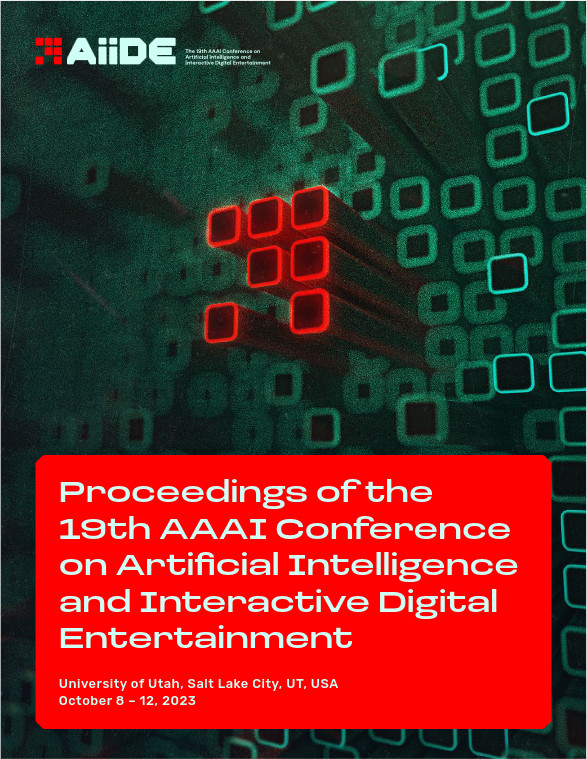Probabilistic Logic Programming Semantics For Procedural Content Generation
DOI:
https://doi.org/10.1609/aiide.v19i1.27525Keywords:
Procedural Content Generation, Bayesian, Probabilistic Programming, Logic Programming, Machine LearningAbstract
Research in procedural content generation (PCG) has recently heralded two major methodologies: machine learning (PCGML) and declarative programming. The former shows promise by automating the specification of quality criteria through latent patterns in data, while the latter offers significant advantages for authorial control. In this paper we propose the use of probabilistic logic as a unifying framework that combines the benefits of both methodologies. We propose a Bayesian formalization of content generators as probability distributions and show how common PCG tasks map naturally to operations on the distribution. Further, through a series of experiments with maze generation, we demonstrate how probabilistic logic semantics allows us to leverage the authorial control of declarative programming and the flexibility of learning from data.Downloads
Published
2023-10-06
How to Cite
Madkour, A., Martens, C., Holtzen, S., Harteveld, C., & Marsella, S. (2023). Probabilistic Logic Programming Semantics For Procedural Content Generation. Proceedings of the AAAI Conference on Artificial Intelligence and Interactive Digital Entertainment, 19(1), 295-305. https://doi.org/10.1609/aiide.v19i1.27525
Issue
Section
Research Track Posters

